Best Online Chess Learning App to Rely On in 2026
Best Online Chess Learning App to Rely On in 2026
In 2026, the smartest way to grow as a chess player — whether you’re a curious beginner or a gritty club competitor — is a purpose-built, AI-augmented learning ecosystem that blends lessons, practice, human coaching, and habit design. Nayku brings exactly that: training paths, micro-lessons, deep analysis, live coaches, and playful community structures that make improvement consistent and joyful.
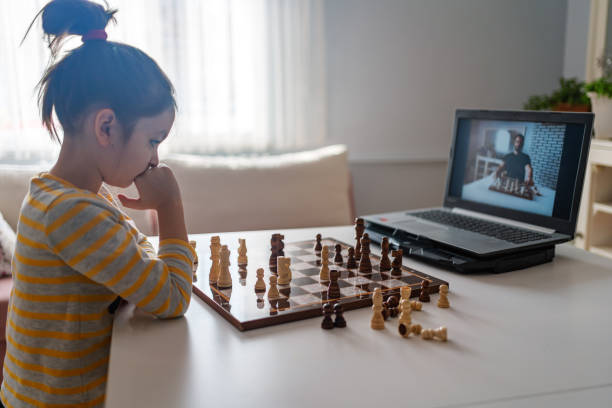
Why online chess learning is the single best skill-investment in 2026
- If you want one habit that improves your focus, decision-making, memory, and competitive calm — while also giving you an endlessly replayable hobby — chess is unmatched. The worldwide interest in chess has been resurgent across the last decade due to social media, accessible online play, and smarter training tools. Digital training has transformed chess from a board-game pastime into a serious training sport that anyone can access from their phone. The market supporting chess growth has expanded rapidly, with analysts estimating meaningful multi-billion-dollar market value as digital tools and coaching scale up.
- But popularity is only useful if learning is effective. That's where a modern online chess learning app must excel: it must remove friction between curiosity and improvement by giving you personalized next steps — not just puzzles or textbook chapters, but a path that’s tailored and motivating. Nayku defines that path with features and pedagogy engineered for 2026.
The deep roots of chess — why this ancient game still trains modern minds
- Chess did not appear overnight. Its ancestor, chaturanga, was played in India as early as the 6th–7th century CE; from there the game spread across Persia, the Muslim world, and to Europe, evolving rules and culture over a millennium. This continuity explains chess’s unique pedagogical power: a simple set of pieces leads to near-infinite complexity, which is ideal for steady skill scaffolding.
- Because chess compresses planning, memory, tactics, and psychology into a single activity, training at the board produces measurable cognitive benefits. Recent research across neuroscience and educational studies continues to show that structured chess practice enhances working memory, planning skills, and decision-making, and that thoughtfully designed digital training can deliver those benefits efficiently.
What “best” means in 2026 — a new checklist for modern chess learning
Calling anything “the best” requires a clear definition. By 2026, the expectations for a top online chess learning platform are higher than ever. Here’s the checklist any serious player should expect — Nayku was designed to meet these criteria:
- Personalized curriculum — not one-size-fits-all but dynamic lesson paths that change with your strengths, weaknesses, and schedule.
- AI-assisted feedback — instant, accurate explanation of “why” behind each move and personalized practice sets targeted at your recurring mistakes.
- Human coaching on demand — lessons or reviews with vetted coaches who can clarify concepts and reframe mistakes into learning moments.
- Micro-learning and habit design — tiny, daily lessons that chain into weeks and months of measurable progress.
- Practice diversity — puzzles, endgame drills, opening principles, annotated master games, correspondence challenges, and timed matches.
- Game analysis tools — deep postgame analytics that highlight strategic mistakes, blunders, and recurring patterns.
- Community and competitive structure — attentive communities, leagues, and friendly tournaments to convert practice into real-game resilience.
- Ethical anti-cheat measures — robust monitoring and coaching-centered culture to discourage and detect unfair play.
- Data privacy and educational transparency — clear metrics, measurable goals, and the ability to export or review your learning history.
- Cross-device, low-latency play — great experiences on phones, tablets, and desktop.
Nayku is built around these tenets: personalization at the center, AI and humans collaborating, and an emphasis on long-term improvement habits.
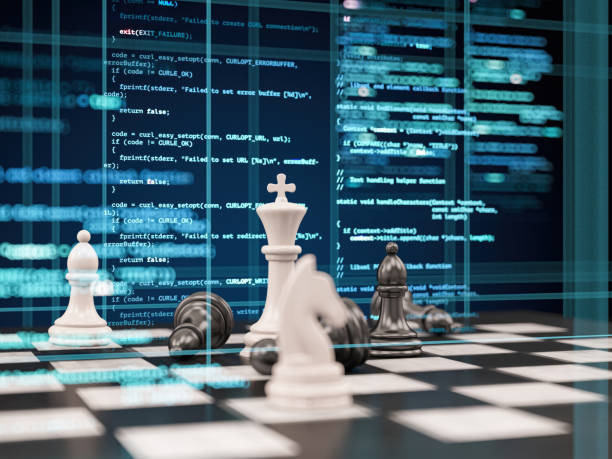
How AI changed chess learning — and why that matters to you
- The last wave of progress in chess training came from adaptive engines and AI coaches. Modern AI doesn’t just find the “best move” anymore; it can articulate why a move is better, design a sequence of training puzzles that close your weaknesses, and even model opponent psychology. Research shows that AI-driven training produces measurable improvements when integrated with human feedback, because AI scales analytic power while coaches provide nuance, motivation, and psychological framing.
- In practical terms this means: instead of slogging through static puzzles, you receive dynamically updated sessions where the difficulty, theme, and feedback style change with your performance. That’s exactly how Nayku’s training engine operates: it identifies patterns in your play and prescribes targeted micro-lessons (e.g., “endgame technique with opposite-coloured bishops,” or “tactical motif: double attack”) with immediate feedback and annotated model games.
The learning architecture: building skill that sticks
Improvement happens through cycles: learn → practice → reflect → adapt. A great training platform encourages short, repeatable cycles so learning is continuous and measurable.
Nayku’s architecture follows these layers:
- Foundational modules – chess basics, piece mechanics, check and mate, simple tactics. Designed as animated micro-lessons for absolute beginners.
- Skill ladders – stage-based progression (Beginner → Intermediate → Advanced → Tournament-ready) with clear milestones and checkpoints.
- Adaptive drills – puzzles drawn from your games; strength-rated and focused on recurring errors.
- Annotated master games library – curated, bite-sized walkthroughs explaining strategy, not just moves.
- Coach feedback loops – recorded game reviews by coaches with voice notes and text summaries.
- Performance dashboard – ELO-like trend lines, mistake heatmaps, time management analysis, and opening repertoire metrics.
This structure emphasizes skill retention (through spaced repetition and deliberate practice) rather than momentary accomplishments.
The most powerful training rituals
Habit design matters far more than the occasional long study blitz. Here are research-backed rituals that produce disproportionate improvement — and how Nayku operationalizes them:
- Daily micro-puzzles (10–20 minutes) — Consistent short practice yields stronger retention than erratic long sessions. Nayku sends micro-puzzle streaks that adapt to your learning curve.
- Post-game reflection (5 minutes) — Immediately review one key mistake and one good decision per game; coach prompts guide these reflections inside Nayku.
- Weekly focused theme — Train one theme (e.g., “knight outposts”) for a week with puzzles, annotated games, and a coach micro-lesson.
- Monthly milestone games — Play a timed rated match every month to test transfer from training to performance; Nayku logs and compares progress.
- Coach accountability — Short weekly check-ins with a coach or trainer keep motivation aligned — coach feedback is integrated into Nayku’s learning plan.
These small rituals compound. The platform nudges you, tracks adherence, and customizes rewards to keep momentum.

For parents and educators: chess as curriculum-friendly training
Chess pairs exceptionally well with classrooms and homeschooling because it maps directly to skills educators want — concentration, planning, resilience, and mathematics-related thinking. Modern research supports this: structured chess training can improve working memory and cognitive control, especially when combined with guided reflection and progressive challenge. Digital training is easier to integrate: teachers can assign modules, track class progress, and run group tournaments. Nayku supports teacher dashboards, curated lesson packs for classrooms, and education pricing to make this scalable.
Who benefits most from online chess learning?
The short answer: everyone. But we can be more precise.
- Absolute beginners: need clarity, patient onboarding, and lots of low-complexity practice.
- Casual players: want to improve without heavy time commitment — micro-lessons and habit nudges help.
- Club players and ambitious amateurs: need deeper analysis, opening-building tools, and coach time.
- Competitive juniors: require structured training, tournament simulation, and psychological coaching.
- Seniors and lifelong learners: benefit from cognitive training and flexible lesson pacing.
Nayku’s modular pathway lets the same platform serve all these cohorts without diluting quality.
Feature spotlight: the analysis toolkit that changes games
Not all postgame analysis is equal. There’s noise, and there’s signal. Nayku’s analysis toolkit focuses on signal: it flags tactical blunders, strategic imbalances, and recurring time-pressure errors, but it also explains why a position worsened — e.g., “weak pawn structure after …, giving opponent knight outpost on d5.” The toolbox includes:
- Move-by-move explanations (human-readable reasoning augmented by engine evaluation).
- Heatmap of mistakes — which phases (opening/middle/endgame) you most often err in.
- Opening repertoire report — success rates by line and suggested adjustments.
- Endgame simulator — interactive endgame drills that start from your actual lost endgames.
- Tactical theme extractor — identifies the motifs where you stumble (forks, pins, discovered attacks).
Engine numbers are useful, but they’re only action-able when translated into learning tasks — that’s the core principle here.
Coaching model: human + AI = exponential learning
- The best learning platforms combine AI’s throughput with human coaching’s empathy. AI identifies weaknesses and prescribes tasks; human coaches provide contextual teaching, motivation, and real-time corrections. Nayku’s coach marketplace carefully vets coaches (credentials, teaching demos, student references) and pairs them via an algorithm that factors your learning style and goals. Sessions can be short — 20–30 minutes — focused on your recent games. Coaches get access to the same analytics you see so every lesson is precise and actionable.
- Research on AI-assisted chess training indicates that this hybrid model accelerates improvement faster than AI or humans alone — a trend becoming standard by 2026.
Building openings that work for you — the repertoire studio
Openings often feel like a tangle of memorized moves. The smarter approach is concept-driven repertoire building. Nayku’s repertoire studio recommends lines based on your time control, typical opponents, and style (tactical vs positional), and then constructs a learning program: short concept lessons, example model games, and targeted practice puzzles from that opening. The studio measures how often you get comfortable middlegames from your openings — not just how often you play the book moves.
Tactics, endgames, and pattern memory :training the three pillars
Long-term progress rests on mastering three pillars:
- Tactics — short combinations and pattern recognition (trained with spaced repetition).
- Endgames — technique and fundamental positions, practiced with progressive difficulty.
- Strategy & pattern memory — positional themes and planning.
Nayku converts your mistakes into focused drills across these pillars. For tactics, the platform creates a “pattern deck” that surfaces motifs you miss until they become reflexive. For endgames, the system spawns training positions directly from your games. And for strategy, annotated master games and coach walkthroughs re-contextualize the big ideas.
Social learning: communities, leagues, and mentorship
Learning is faster and stickier in communities. Nayku supports:
- Themed cohorts (e.g., “Six-week middlegame cohort”) with small-group challenges.
- Mentorship programs pairing rising players with experienced mentors for monthly reviews.
- Micro tournaments — low-pressure events designed to practice new skills rather than chase rating.
- Public leaderboards & private progress groups — options for privacy-minded learners.
These social mechanisms turn solitary practice into a shared journey — crucial for long-term engagement.
Anti-cheat ethics and a culture of fair improvement
A central challenge for online chess is cheating: unfair engine assistance undermines development and ruin games. A great learning platform invests in a culture of fair play and technical detection: behavior analysis, suspicious-move pattern detection, and coach-verified badges. More importantly, encouraging learners to treat mistakes as the pathway to skill reduces the incentive to cheat. Nayku combines technical measures with an honor-driven learning environment and coach accountability.
Habit design case study — 12 months to a measurable rating jump
Imagine a player starting at ~900 rapid rating with irregular practice. A 12-month Nayku plan might look like:
- Months 1–3: daily micro-lessons (15 min), 3 annotated master games per week, weekly coach check-in.
- Months 4–6: focused tactical ladder, opening repertoire introduced, monthly tournament simulation.
- Months 7–9: endgame deep-dive, time management workshops, targeted psychological coaching.
- Months 10–12: opening refinement, coach-scouted opponent prep, performance review and targeted training.
This progressive plan — mixing micro-practice, coaching, and real-game testing — frequently yields a 250–500 point improvement for committed learners in a year, depending on baseline and engagement. (Individual results vary; improvement is the product of practice quality and consistency.)
Why measurement matters — the Nayku performance dashboard
You can’t improve what you can’t measure. Nayku’s dashboard transforms raw games into growth signals:
- Trendlines for accuracy and blunder rate (per phase).
- Time usage graphs — where are you burning time?
- Opening success heatmaps — which lines give you comfortable middlegames?
- Coach-suggested focus areas — action items after each review.
This data helps you prioritize practice tasks that actually change outcomes.
The science behind training: what research says and how Nayku applies it
A slate of studies shows that chess training improves cognitive functions such as working memory, attention, and decision-making when training is structured and sustained. Recent systematic reviews and experimental studies reiterate that digital tools are effective when they provide personalized, scaffolded practice and combine algorithmic guidance with human coaching. Nayku follows these findings by combining adaptive algorithms, spaced repetition, and live coaching — the triptych that research highlights as high-impact for cognitive and chess skill growth.
Accessibility: making chess learning inclusive
A modern platform must be accessible: clear fonts, audio explanations, low-bandwidth modes, and UI parity across devices. Nayku emphasizes multimodal learning: read-aloud lessons, subtitles, image-rich explanations for visual learners, and coach audio recordings for learners who prefer listening.
Pricing and value model
Value is not lowest-price; it’s the mix of quality, frequency, and coaching access.
- Free tier — enough to learn the basics and try micro-lessons.
- Subscriber tier — full curriculum, analytics, and community.
- Pay-per-coach — short focused sessions priced by length and coach level.
- Education/School licenses — bulk access and teacher tools.
A flexible pricing model helps learners scale spending with results: pay for guided growth, not for flashy but shallow features.

Security & privacy — protecting learning data
Player games and analytics are personal training artifacts. Nayku adheres to privacy best practices: encrypted data, opt-in sharing for public profiles, teacher-controlled classroom data, and clear export options for learning histories.
Design & UX: tiny decisions that make learning delightful
Small design choices matter: quick lesson completion times, a “next best task” CTA after analysis, playful progress badges that mean real skill (not gamified vanity). Nayku’s UX focuses on frictionless learning — quick wins first, deeper study later.
Coaching certification & quality control
Not every coach is a good teacher. Nayku’s coach certification emphasizes teaching ability, not only rating: trial lessons, recorded teaching samples, and student feedback. Coaches are rated on clarity, empathy, and outcomes.
Tournament preparation: transitioning practice to confident performance
Training for tournaments involves time-management, opening preparation specific to opponents, and psychological readiness. Nayku’s tournament prep packs bundle opponent analysis, timed practice matches, and mental conditioning lessons to convert practice into performance readiness.
How to start — a 30-day plan for visible improvement
Day 1–7: baseline assessment (five diagnostic games), micro-lessons (10–15 min/day), and a coach intro session.
Day 8–21: a focused tactical ladder, 3 annotated game studies, and a daily puzzle streak.
Day 22–30: simulated tournament weekend (three rated rapid games), coach postmortem, and updated month-two plan.
This cadence builds confidence and makes improvement measurable.
Common questions answered
Q: Do I need a coach to improve?
A: Many players can climb a few hundred points with structured self-study. Coaches accelerate and correct plateaus, especially at intermediate/advanced levels.
Q: Is AI cheating?
A: No — AI is an analytical tool. The ethical line is using engine moves in live games. Training with AI explanations is legitimate and powerful.
Q: How much time should I invest?
A: 15–30 minutes a day of deliberate practice is more effective than weekend marathons.
The global chess surge — what the market says
The chess ecosystem has grown into a sizable global market driven by digital adoption, tournaments, and education. Market research highlights a multi-billion-dollar valuation for the chess market, with projections indicating sustained growth as digital coaching and competitive play expand worldwide. This growth validates investment into scalable learning platforms that combine technology with human coaching.
why Nayku is the platform to rely on in 2026
Nayku blends everything a modern learner needs:
- Personalized, adaptive learning paths that evolve with you.
- AI explanations that go beyond engine numbers to instructive rationale.
- Human coach access for nuance, strategy, and accountability.
- Micro-learning and habit design to keep improvement steady.
- Robust analytics to convert games into targeted practice.
- Inclusive design and education tools for schools and parents.
If your goal is not just to play chess but to get better in a structured, measurable, and enjoyable way — Nayku is designed to be the single place that supports that journey from curiosity to confident competitor.
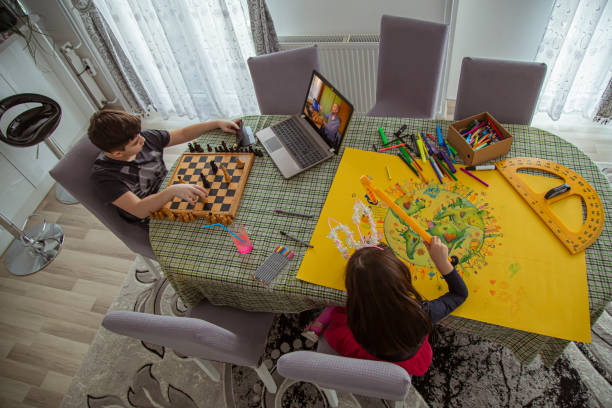
Final thought — chess as a life skill in 2026
Chess is a compact simulator of life’s decisions: limited information, time pressure, and irreversible choices. Learning chess trains a mindset: evaluate, adapt, and accept responsibility for decisions. In 2026, with the abundance of digital tools and better pedagogical design, a platform that prioritizes learning quality — not vanity metrics — will be what produces lasting results. Nayku promises that quality, wrapping centuries-old wisdom in modern, evidence-based training systems.
Related Articles
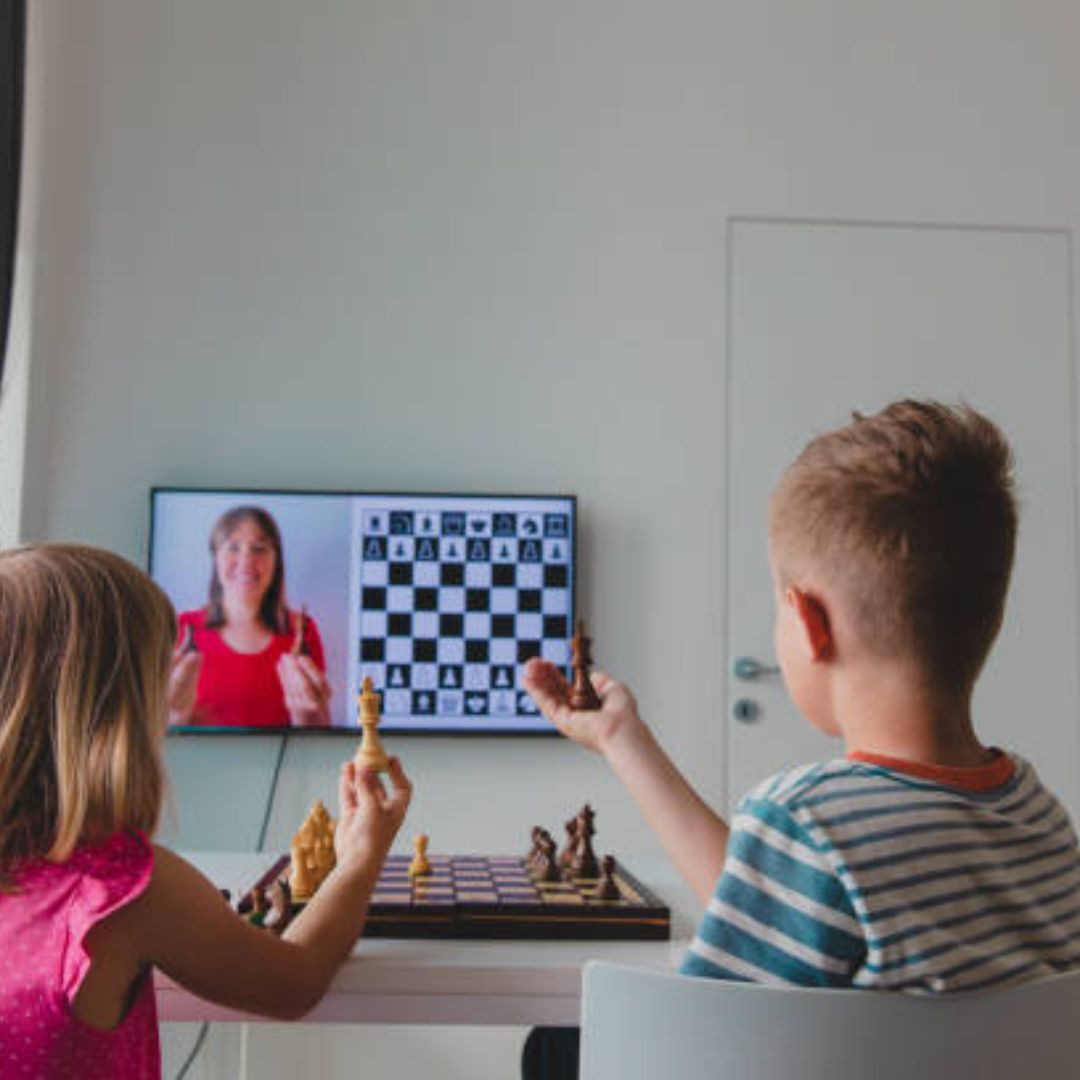
Top 3 Highest Rated Online Chess Tutors in Wyoming
Explore the top 3 highest rated online chess tutors in Wyoming offering strategic, tactical, and min...
Read More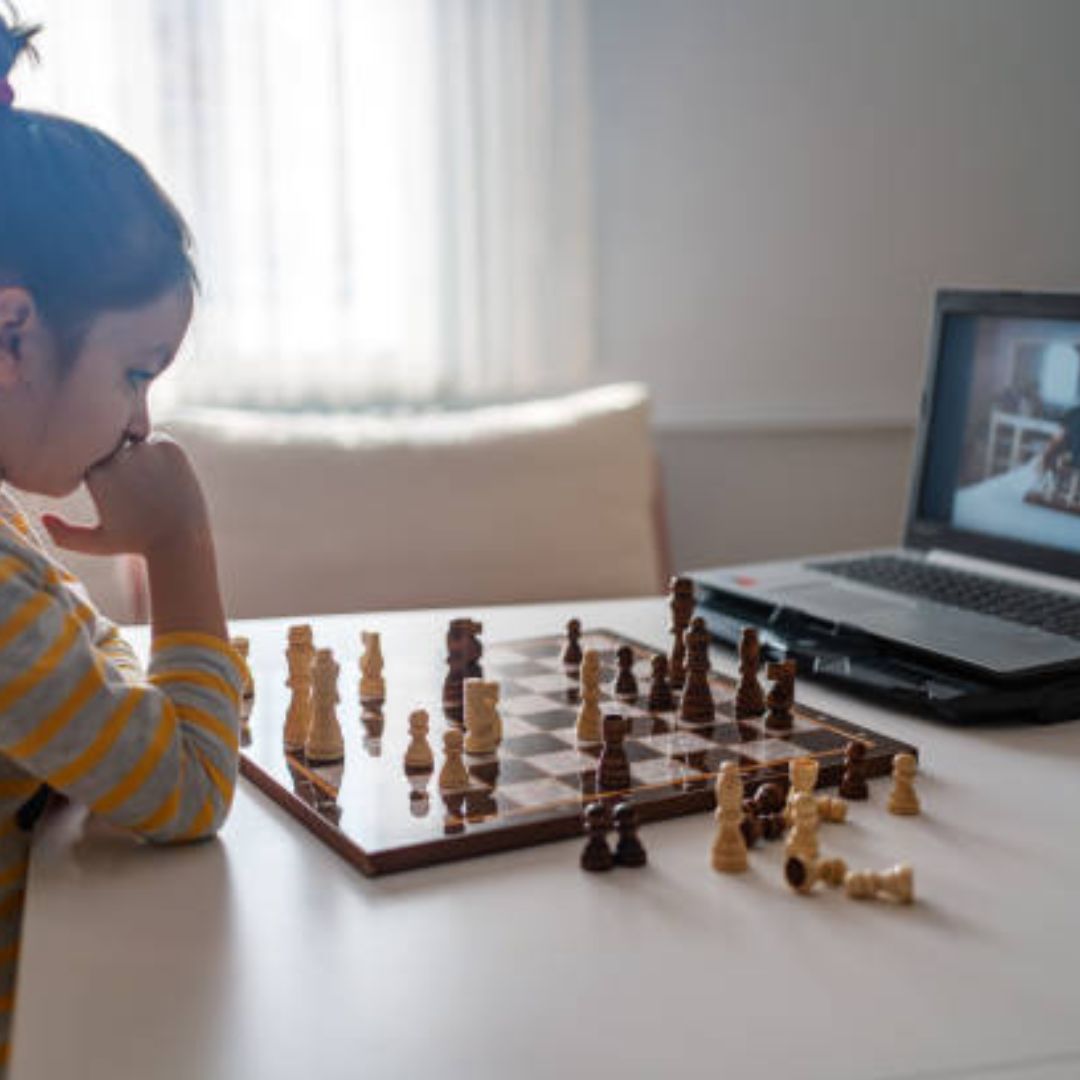
9 Highest Rated Online Chess Tutors in Vermont
Discover the 9 highest-rated online chess tutors in Vermont with Nayku. Learn strategic, tactical, a...
Read More
5 Highest Rated Online Chess Tutors in Delaware
Discover Delaware’s best online chess tutors through Nayku—personalized lessons, expert guidance, an...
Read More
